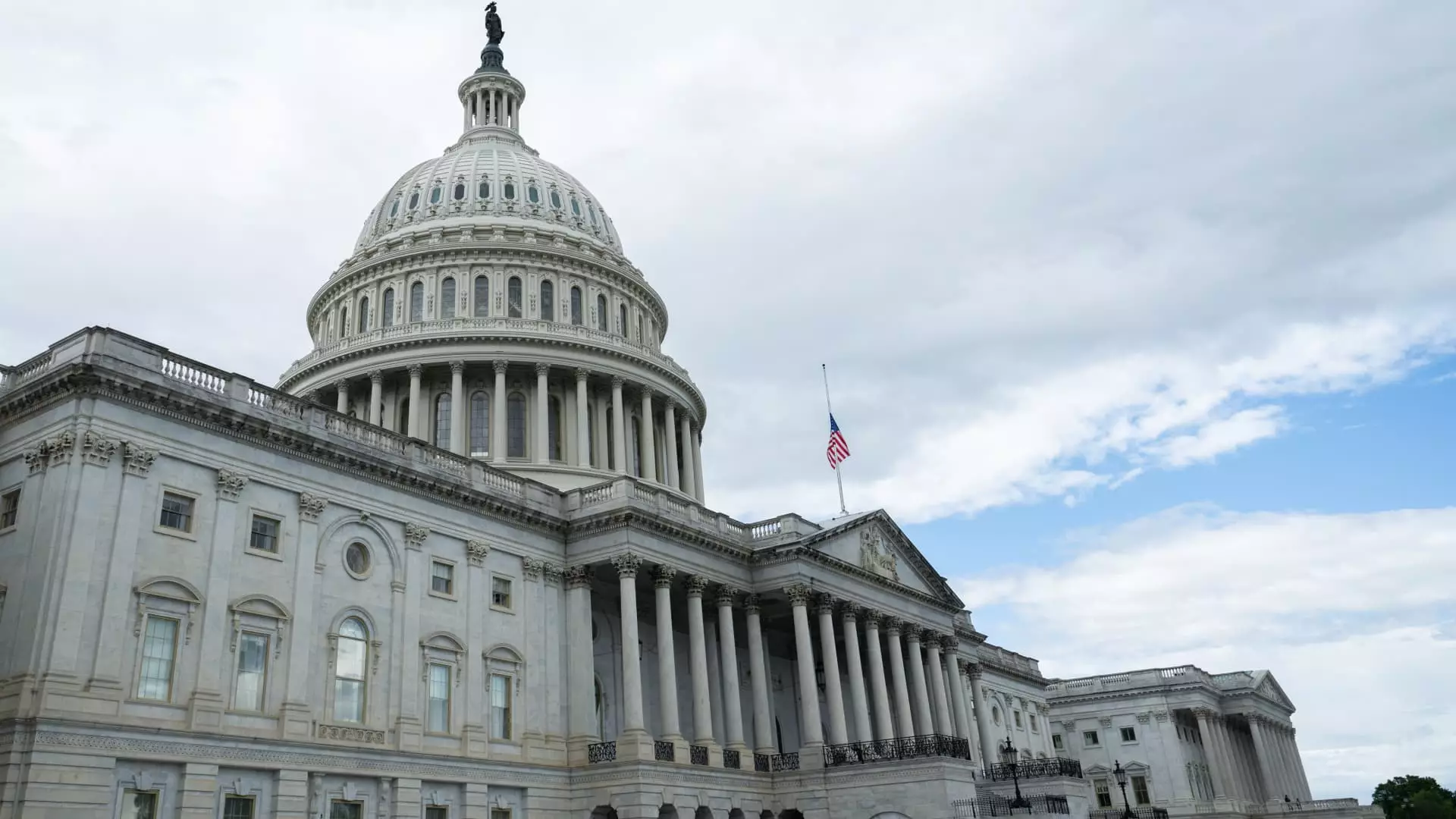The recent tax reform bill passed by House Republicans has ignited a contentious debate about fiscal responsibility and national debt. Ostensibly aimed at broadening economic opportunities through tax cuts, the legislation could actually lead to a catastrophic increase in national debt—estimated to surge by up to $3.8 trillion over the next decade. This isn’t just a minor concern for fiscal hawks; it poses a real threat to the financial well-being of average Americans. Such reckless financial maneuvering threatens to render essential safety net programs impotent while enriching those at the top—a troubling blend of economic irresponsibility and social inequity.
Critics like Rep. Thomas Massie have raised alarm bells, decrying the legislation as a “debt bomb ticking” that is bound to exacerbate existing fiscal challenges. His claim is not merely hyperbole; a bill that disproportionately favors the wealthy by slashing $4 trillion in taxes, while gutting essential services like Medicaid, exemplifies a callous disregard for fiscal integrity in pursuit of a regressive agenda.
The Myth of ‘Supply-Side’ Economics
Advocates for the tax cuts frequently tout the trickle-down economic theory, arguing that benefits granted to corporations and high earners will inevitably trickle down to the lower and middle classes. However, this concept has been debunked time and again. History has shown that tax cuts for the wealthy often result in increased income inequality rather than widespread economic prosperity. As budget deficits balloon, the economy feels the aftershocks—leading to higher interest rates that primarily impact those struggling to make ends meet.
If we prioritize helping wealthier individuals at the expense of social programs aimed at aiding low-income households, we risk destabilizing the very foundation of American economic mobility. The costs of housing and consumer loans are intricately tied to U.S. Treasury yields, which are expected to spike as investors panic over rising debt levels. Accordingly, average consumers will find themselves contending with soaring interest rates and tightening access to credit, further exacerbating the economic divide in our nation.
The Argument Against Short-Term Gains
It is alarming to witness a government willing to compromise long-term fiscal health for short-term political gains. Notable Republican senators, including Rand Paul, have expressed apprehension over the bill’s potential to inflate the national debt, cautioning that “the math doesn’t really add up.” This skepticism should resonate with the average citizen, who may perceive these burgeoning debt figures as abstract, but will feel the very real effects in their daily lives. Increased national debt often translates into heightened awareness of financial risks in the broader economy—risks which can manifest in higher borrowing costs and reduced economic opportunities for everyone but the wealthiest.
Maintaining fiscal discipline is crucial for sustainable economic health. If the U.S. government continues to operate on a deficit model, the repercussions will be dire—not just for future generations but also for current households already grappling with debt. As Mark Zandi, chief economist at Moody’s, patiently elucidated, the perception of a ballooning U.S. debt burden triggers a domino effect, causing consumers to face significantly higher borrowing costs.
An Illusion of Economic Stability
While some proponents of the bill argue that tariffs could counterbalance the financial losses from expansive tax cuts, such a strategy relies on an unreliable foundation. Tariffs hinge on the whims of future administrations, making them a tenuous backstop against potential economic repercussions. This might explain the deepening divide between rhetoric and reality regarding fiscal responsibility; those arguing for tax cuts often disregard the potential implications for revenue in an unstable international trade environment.
In an unsettling irony, the same household names that argue for tax relief fail to grasp that continuously escalating debt—especially when pinned against a backdrop of raising interest rates—will lead to a less predictable financial landscape. Imagine a scenario where vibrant entrepreneurship is stifled because the cost of capital rises steeply, determining not only the rates on mortgages but influencing the entire economy’s growth trajectory.
The Road Ahead: A Call to Action
Instead of following this reckless path dictated by a small group of lawmakers, we must pivot toward a more balanced approach—one that recognizes the urgency of fiscal responsibility while ensuring that we lift up all citizens, not just those who are already profiting at the expense of others. Protecting essential social safety nets while harnessing the power of sustainable tax policies is a far more prudent course of action.
Let us not underestimate the gravity of our choices today. It’s time for lawmakers to reconsider whether they are truly serving the American people or simply masquerading under the guise of fiscal reform. A commitment to reducing economic disparity and fostering an equitable fiscal policy must become our guiding principle, lest we pay a dire price for this political theater in the years to come.

